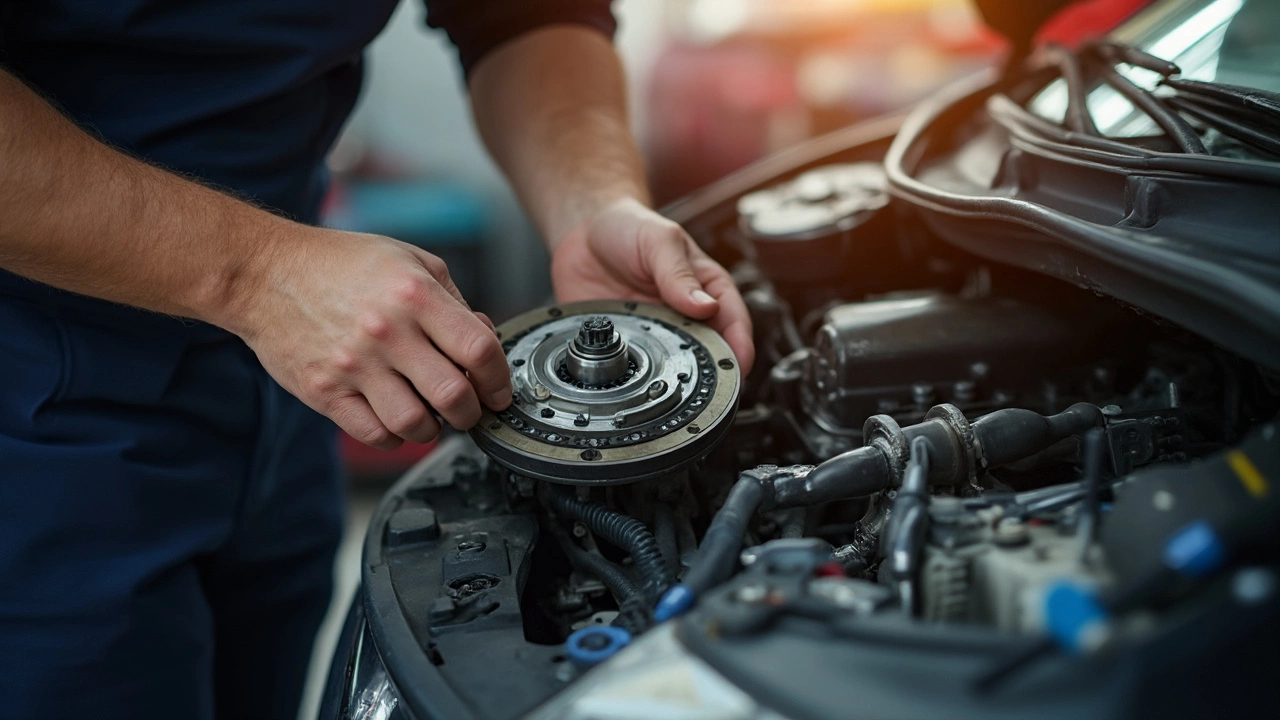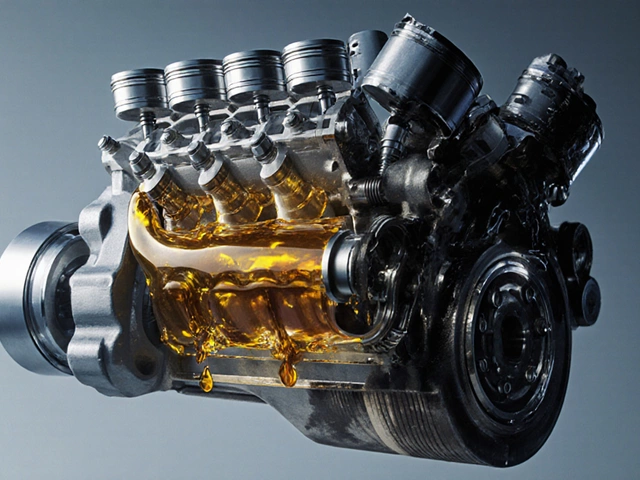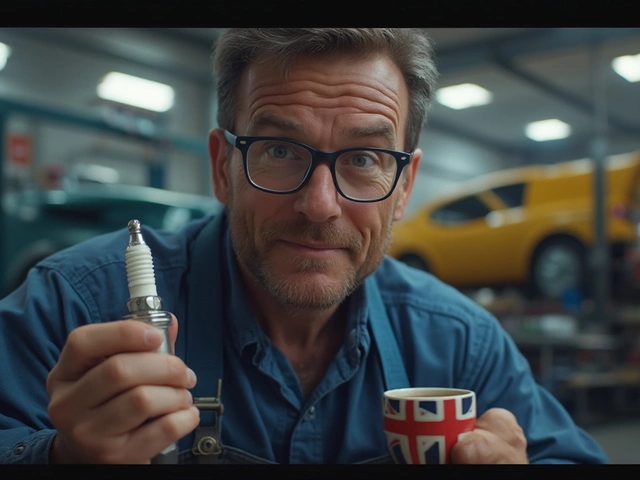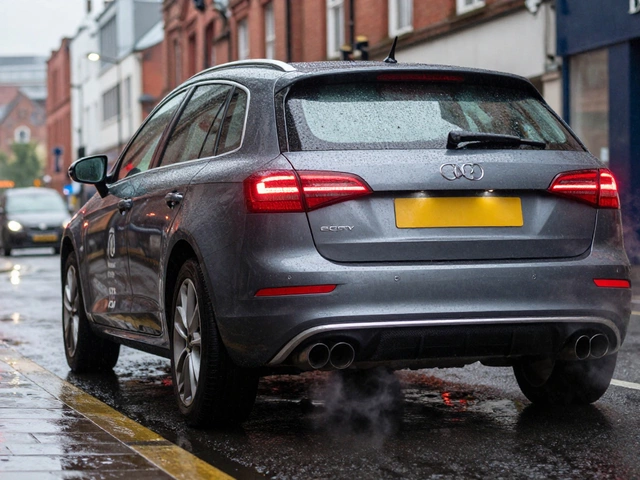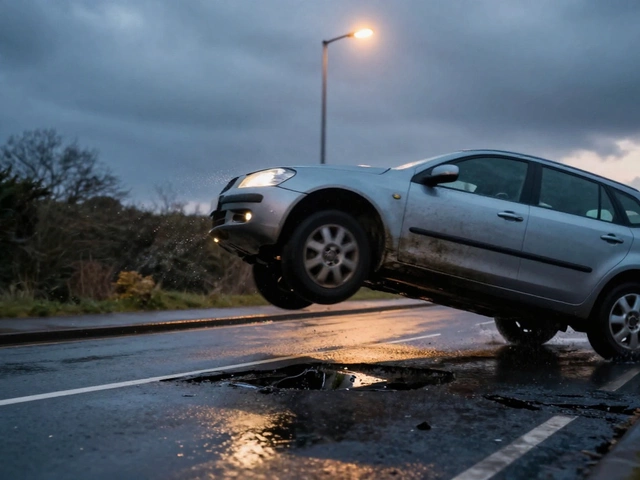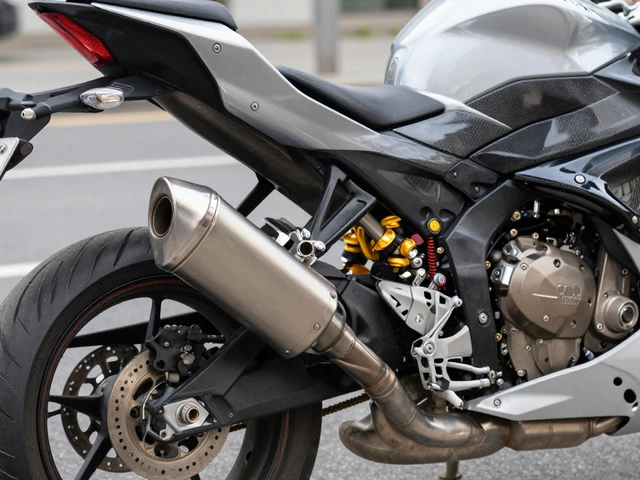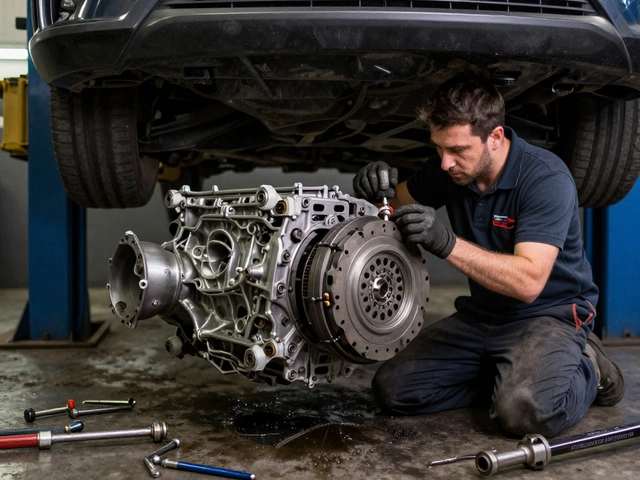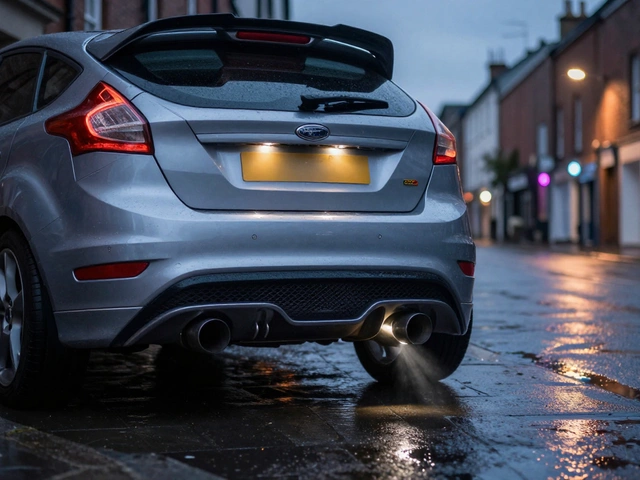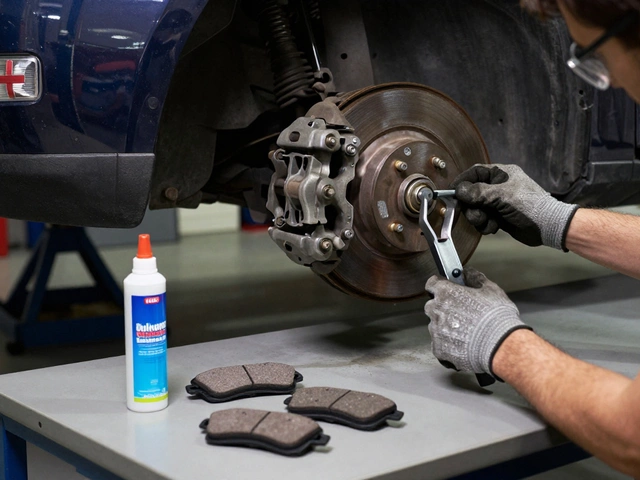So, your clutch is slipping, and you're probably wondering just how much lighter your wallet's about to get. Let's break it down. A typical clutch replacement cost can swing anywhere between $500 and $1,500. Yeah, that is quite a range! The thing is, it depends on your car. A clutch replacement for a high-performance sports car isn't going to cost the same as the one for a compact sedan.
Now, if you think the location doesn't affect costs, think again. Big cities often mean bigger bills. That could be due to higher labor rates or just the cost of living creeping into the price. And speaking of labor, if you're paying a pro, you might be looking at several hundred bucks just for their work.
- Understanding Clutch Replacement Costs
- Factors Affecting Price
- DIY vs Professional Replacement
- Tips to Extend Clutch Life
- When to Replace Your Clutch
Understanding Clutch Replacement Costs
Alright, let's get into the nitty-gritty of clutch replacement. On average, clutch replacement costs range from around $500 to as much as $1,500. But the truth is, the sky's the limit if you've got a fancy ride with a specialized clutch. So why the difference? Several factors come into play.
First up, there's the type of clutch kit you need. Basic kits include a clutch disc, pressure plate, and release bearing, but sometimes the flywheel, which can cost extra, needs changing too. If your car's got dual-clutch or other fancy systems, you're signing up for more expensive parts.
Labor Costs Make a Difference
Labor is another biggie when it comes to clutch replacement cost. Mechanics usually charge between $70 and $150 an hour, depending on their shop and location. So, if replacing your clutch takes 4 to 6 hours, you do the math. That's hundreds tacked on to your bill just for labor.
Location, Location, Location
Don't forget - where you live impacts that price tag, too. In bigger cities, everything costs more, right? So does car repair. If you're in a small town, you might save some cash on the labor side of things.
| Vehicle Type | Cost Range |
|---|---|
| Compact Car | $500 - $1,000 |
| Luxury Sedan | $750 - $1,500 |
| Sports Car | $1,200 - $2,500 |
When getting that quote, ask if they’re checking other parts like the clutch master cylinder or slave cylinder. Sometimes related repairs only show up when you're already knuckles deep in the car. That can add unexpected dollars.
In short, before you get started, ask for an itemized estimate. It'll help you avoid any surprises when they present you with the bill.
Factors Affecting Price
When it comes to replacing your clutch, there's a bunch of variables that can mess with the final cost. Let's break down the key factors so you know what you're getting into.
Type of Vehicle
First up: your car's make and model. Replacing a clutch in a luxury car or high-performance sports car is going to cost you more than for a basic compact. It's all about the parts; luxury cars are like luxury housing—everything's pricier.
Labor Costs
Location, location, location. Live in a bustling city? Expect higher labor rates. The cost of living is like an unwelcome guest that clings to everything, including your repair bill.
"Labor rates can vary tremendously, with urban areas seeing a surge in prices," notes Mike Taylor, an automotive industry expert from Car-Tech Weekly.
Parts Quality
OEM vs aftermarket parts? OEM parts are original and usually more expensive. Aftermarket parts might save you some dough, but quality can vary. You’ve got to weigh the risks and rewards here.
Condition of Related Parts
It's not just the clutch that may need replacing. The flywheel, pressure plate, or bearings might be on their way out too. A full inspection could turn a simple clutch job into a shopping list.
| Factor | Potential Impact |
|---|---|
| Vehicle Type | $500 to $1,500+ |
| Location | ~10-20% increase in urban areas |
| Parts Quality | Up to 30% more for OEM |
| Added Repairs | $100 to $500 extra |
DIY or Professional
Feeling brave? Taking this on as a DIY project can save you labor costs, but it's no walk in the park. Seriously consider your skills and tools before diving in.
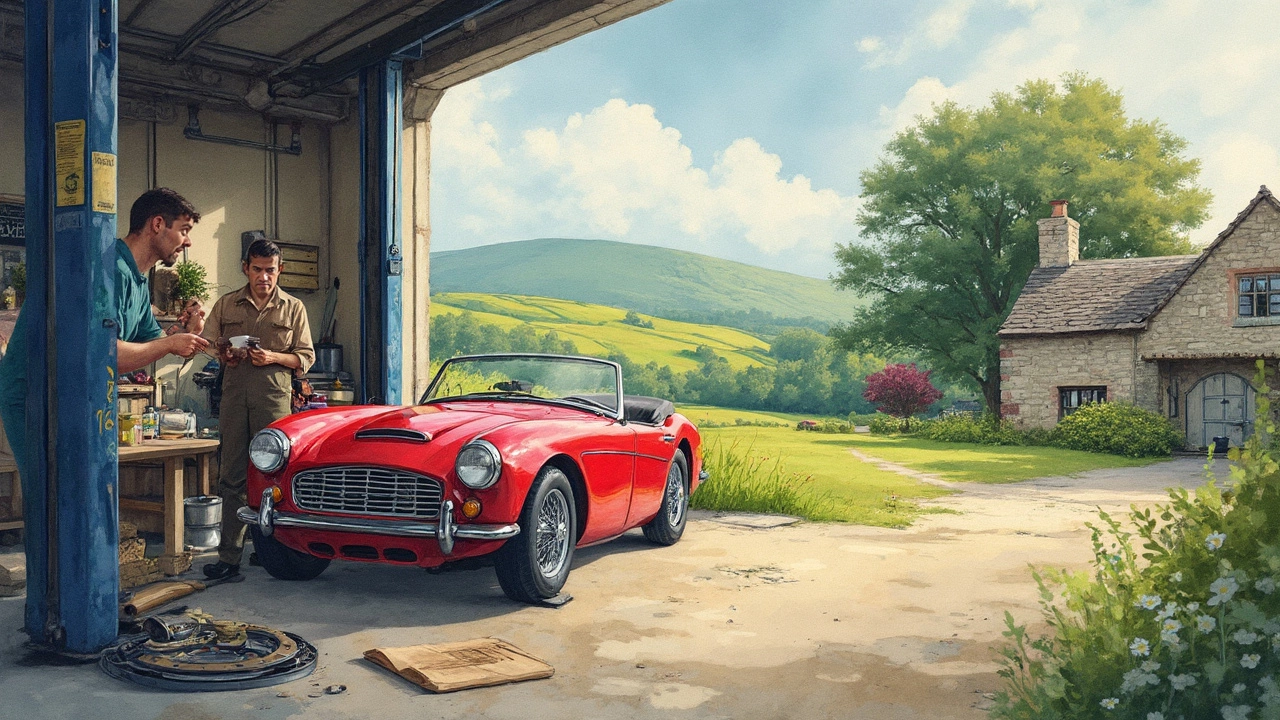
DIY vs Professional Replacement
Ever thought about replacing your clutch yourself? Or maybe you reckon it's worth hiring a professional. Both options have their pros and cons, and choosing the right path could save you a bunch of money or spare you some headaches.
DIY Clutch Replacement
Tackling a clutch replacement on your own can be a cost-saving move. No labor costs there, right? If you're handy with cars, this could be a solid weekend project. Just keep in mind that it's quite a complex job. You'll need a decent set of tools, including jacks, jack stands, and some specific car tools. And it's labor-intensive, no doubt about it.
Here’s a quick breakdown of what you’ll need to consider:
- Get a reliable repair manual for your car's specific model.
- Have the right tools on hand before you begin.
- Make sure you're comfortable working under your car for long periods.
- Be aware that mistakes could lead to costly repairs or safety issues.
Professional Replacement
If the thought of DIY sounds a little too risky, hiring a professional is your best bet. Sure, it’s gonna be pricier due to labor costs, but you'll likely get peace of mind knowing it's done right. A trained technician can handle the intricate work involved in replacing a clutch, minimizing the chance of errors. Plus, some workshops offer warranties, covering potential failure of parts or workmanship.
Here’s a quick overview of why one might choose a pro:
- Professionals have the expertise and tools necessary for a complex job.
- If it goes wrong, you might be covered under warranty.
- Saving time and physical labor.
- You won't have to buy specialized tools you'll only use once.
Ultimately, it boils down to how confident you are in your mechanical skills and whether the potential savings are worth the risks. If you’re a beginner, starting with smaller repair tasks before jumping to clutch replacements might be a safer path.
Tips to Extend Clutch Life
Want to avoid the dreaded clutch replacement cost? Let's talk about making your clutch last longer. It's all about technique and maintenance. Here are some tried-and-true tips.
Avoid Riding the Clutch
One of the most common mistakes is keeping your foot on the clutch pedal when you don't need to. This keeps the clutch partially engaged, causing unnecessary wear. Instead, keep your foot off the pedal unless you're shifting.
Use the Handbrake on Hills
Don't use the clutch to hold your car on a slope. When you're at a stop on an incline, use the handbrake instead. Engaging the clutch in such situations puts a strain on the system, which is not great for its health.
Regular Check-Ups
Like any other part of your car, your clutch benefits from a regular check-up. If you notice something feels off – maybe a sticky pedal or difficulty shifting – have a mechanic take a look. Better safe than sorry.
Don't Overload Your Vehicle
A heavy load can increase wear and tear on your clutch. If you're carrying a bunch of stuff often, you might want to rethink how you're packing your vehicle.
"The longevity of your clutch heavily depends on driving habits and maintenance," says Tom Magliozzi, co-host of NPR's Car Talk.
Effective Downshifting
Downshifting correctly can also extend your clutch's life. Don't suddenly downshift; match your revs to the speed to minimize stress.
Lastly, be mindful of how you engage and disengage your clutch. Smooth and steady wins the race. Following these simple steps can help you avoid frequent trips to the repair shop and save you a bunch of cash in the long run.
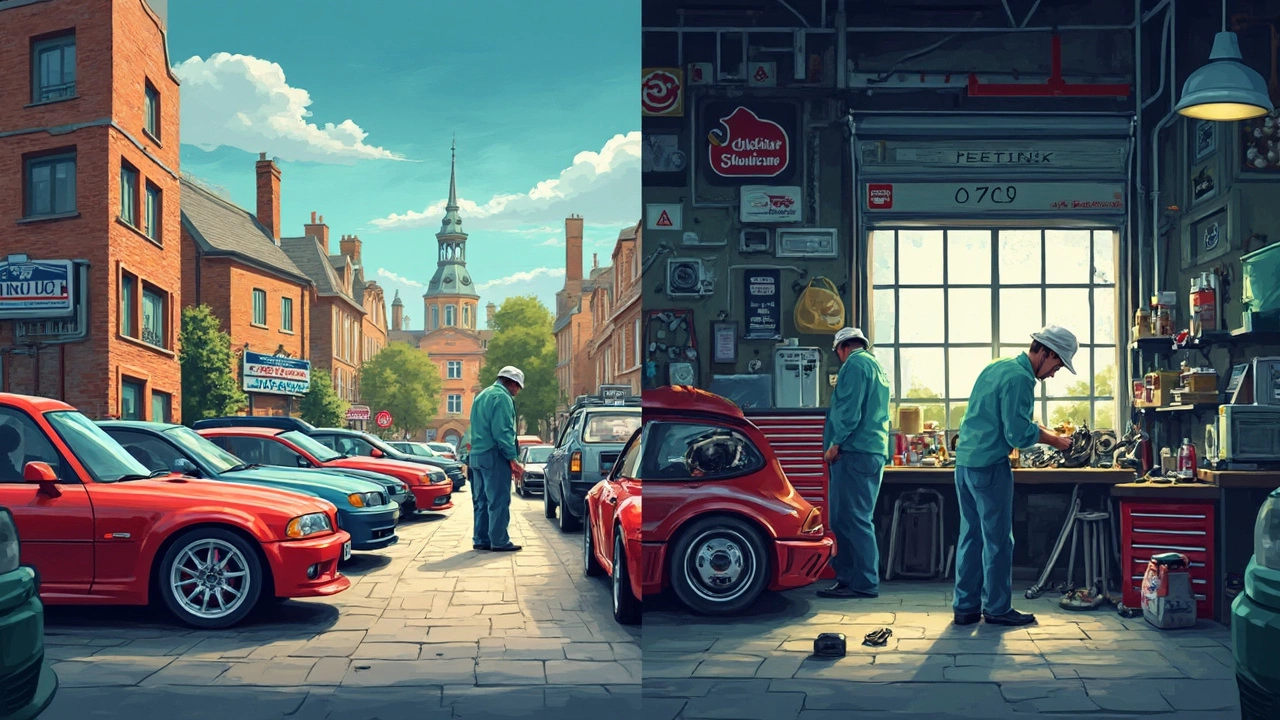
When to Replace Your Clutch
Replacing a clutch isn’t just about feeling like something is wrong; it's about knowing the right signs. If you’re slipping into gear troubles, it's crucial to spot the symptoms before things get worse.
Signs Your Clutch Needs Replacement
- Slipping Clutch: Ever feel like your engine revs without the car really picking up speed? That's slipping, and it usually means your clutch isn’t fully engaging.
- Strange Noises: If you hear grinding noises while shifting, it's a red flag. Sometimes, it's not the clutch itself, but ignoring it could lead to more expenses.
- Sticky Clutch Pedal: A pedal that sticks or is difficult to press could mean clutch trouble. Over time, components wear down or need adjustment.
Watch Out for Other Warning Signs
A burning smell might indicate that your clutch isn't operating smoothly. Also, notice how your car responds when you change gear. Smooth shifts are ideal; anything else isn't.
How Long Does a Clutch Last?
Many factors influence clutch lifespan, including how you drive. Frequent stop-and-go in heavy traffic isn't doing any favors. On average, clutches can last anywhere from 50,000 to 100,000 miles. Do you notice your driving habits leaning towards aggressive? It might be smart to prepare for a sooner replacement.
When to See a Mechanic
If you've experienced any of the above symptoms, it's time to consult a professional. Delays could increase potential costs. A mechanic can provide a clear diagnosis and help you figure out the best move for your vehicle—be it an immediate repair or a scheduled check-up.
Trust your instincts. If something feels off, check it out. Better safe than stuck on the side of the road with a fried clutch, right?
